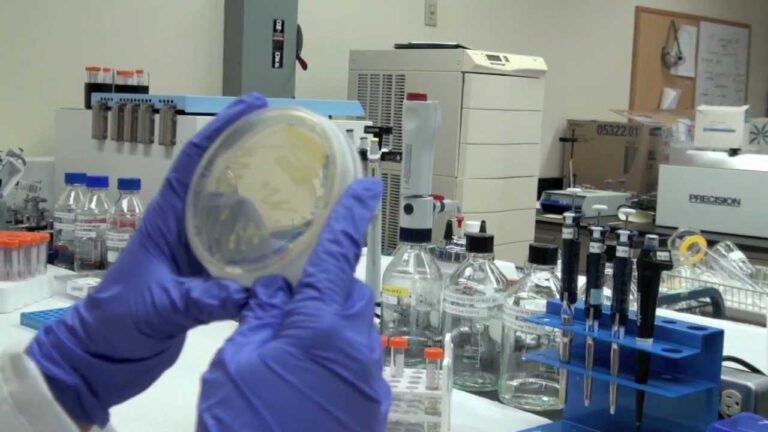Exploring Life: Biologist Job Description & Salary

Biologist Job Description Template
Biologist Job Description A biologist is a professional who studies living organisms and their interactions with the environment. They conduct research, perform experiments, and analyze data to gain a deeper understanding of biological processes. Biologists can specialize in various branches such as microbiology, botany, zoology, genetics, or ecology. One of the crucial responsibilities of a biologist is to collect samples from different sources, including plants, animals, and microorganisms. They employ various techniques to examine these samples under microscopes, conduct genetic analyses, and perform experiments to identify and understand the characteristics and behavior of different species. Biologists also play a vital role in conservation efforts. They study ecosystems and biodiversity, assess the impact of human activities on the environment, and develop strategies to protect endangered species and habitats. By conducting research and providing valuable insights, biologists contribute to the preservation of ecosystems and the sustainable use of natural resources. Additionally, biologists often collaborate with other professionals in interdisciplinary projects. They work closely with chemists, physicists, environmental scientists, and healthcare professionals to explore new areas of research and develop innovative solutions to biological challenges. In summary, a biologist’s job description involves conducting research, analyzing data, and studying living organisms to contribute to scientific knowledge and address various biological issues. Their work is essential for understanding the complexity of life on Earth and finding ways to protect and sustain it for future generations.Biologist Responsibilities
- Conducting experiments and research to study living organisms and their interactions with the environment
- Collecting and analyzing data, such as samples of plants, animals, or microorganisms
- Identifying and classifying different species of organisms
- Studying the structure, function, and behavior of organisms
- Developing and testing theories and hypotheses based on collected data
- Using various techniques and tools, such as microscopes, DNA sequencing, and computer software, to analyze and interpret data
- Writing research papers and reports to communicate findings to the scientific community
- Collaborating with other scientists and researchers to conduct interdisciplinary studies
- Teaching and mentoring students in biology-related topics
- Keeping up-to-date with the latest scientific advancements and attending conferences and workshops
- Ensuring compliance with ethical and safety standards in research and experimentation
Biologist Requirements
How Much Does A Biologist Make?
Biologist Salary
| Job Level | Median Salary |
|---|---|
| Entry Level Biologist | $45,000 |
| Mid-level Biologist | $65,000 |
| Senior Biologist | $85,000 |
| Principal Biologist | $100,000 |
A biologist’s salary can vary depending on their job level and experience. Entry level biologists earn a median salary of $45,000 per year, while mid-level biologists earn around $65,000. Senior biologists, with more experience and expertise, have a median salary of $85,000. The highest level in the field, principal biologists, can earn up to $100,000 or more annually. It’s important to note that these figures are approximate and can vary based on factors such as location, industry, and employer.
Biologist Salaries by Country
Top Paying Countries for Biologist
| Country | Average Salary (USD) |
|---|---|
| Switzerland | 120,000 |
| United States | 85,000 |
| Canada | 75,000 |
| Australia | 70,000 |
| Germany | 65,000 |
Biologists in Switzerland earn the highest average salary of $120,000 per year. They are followed by the United States with an average salary of $85,000. Canada, Australia, and Germany also offer competitive salaries for biologists, with average annual earnings of $75,000, $70,000, and $65,000, respectively.
A video on the topic Biologist
Video Source : Cross ExaminedInterview Questions for Biologist
1. What is the role of a biologist?
A biologist studies living organisms and their interactions with the environment. Their role involves conducting research, analyzing data, and applying scientific knowledge to understand and solve biological problems.
2. What are the different branches of biology?
The different branches of biology include molecular biology, cell biology, genetics, ecology, botany, zoology, microbiology, physiology, and evolutionary biology.
3. What are some common techniques used in biological research?
Some common techniques used in biological research include microscopy, DNA sequencing, polymerase chain reaction (PCR), gel electrophoresis, cell culture, and statistical analysis.
4. How does evolution shape the diversity of life on Earth?
Evolution is the process by which species change over time. It drives the diversity of life on Earth by favoring traits that increase an organism’s chances of survival and reproduction. Through natural selection, new species emerge and others go extinct, leading to the vast array of organisms we see today.
5. What is the importance of biodiversity?
Biodiversity is important for maintaining ecosystem stability and functioning. It provides humans with essential resources such as food, medicine, and clean water. Additionally, diverse ecosystems are more resilient to environmental changes and can better adapt to new challenges.
6. How do biologists contribute to conservation efforts?
Biologists play a crucial role in conservation efforts by conducting research on threatened or endangered species, assessing their population sizes and habitats, and developing strategies for their protection. They also work on restoring degraded ecosystems and promoting sustainable practices.
7. What is the impact of climate change on biodiversity?
Climate change poses a significant threat to biodiversity. Rising temperatures, changing precipitation patterns, and extreme weather events can disrupt ecosystems, alter habitats, and affect the distribution and behavior of species. This can lead to species extinction and a loss of biodiversity.
8. How can genetic engineering be used in biology?
Genetic engineering allows scientists to manipulate the DNA of organisms. It can be used to create genetically modified crops with improved traits, develop new medical treatments and therapies, and study the function of specific genes in organisms.
9. What are the ethical considerations in biological research?
Biological research raises ethical considerations, such as the use of animals in experiments, the potential risks of genetic engineering, and the responsible use of biotechnology. Ethical guidelines and regulations are in place to ensure the welfare of research subjects and the responsible conduct of research.
10. How does biology contribute to human health?
Biology plays a vital role in understanding human health and developing medical treatments. Biologists study diseases, genetics, and the human body to find cures for illnesses, develop vaccines, and improve healthcare practices. They also contribute to the development of personalized medicine and advancements in medical technology.






